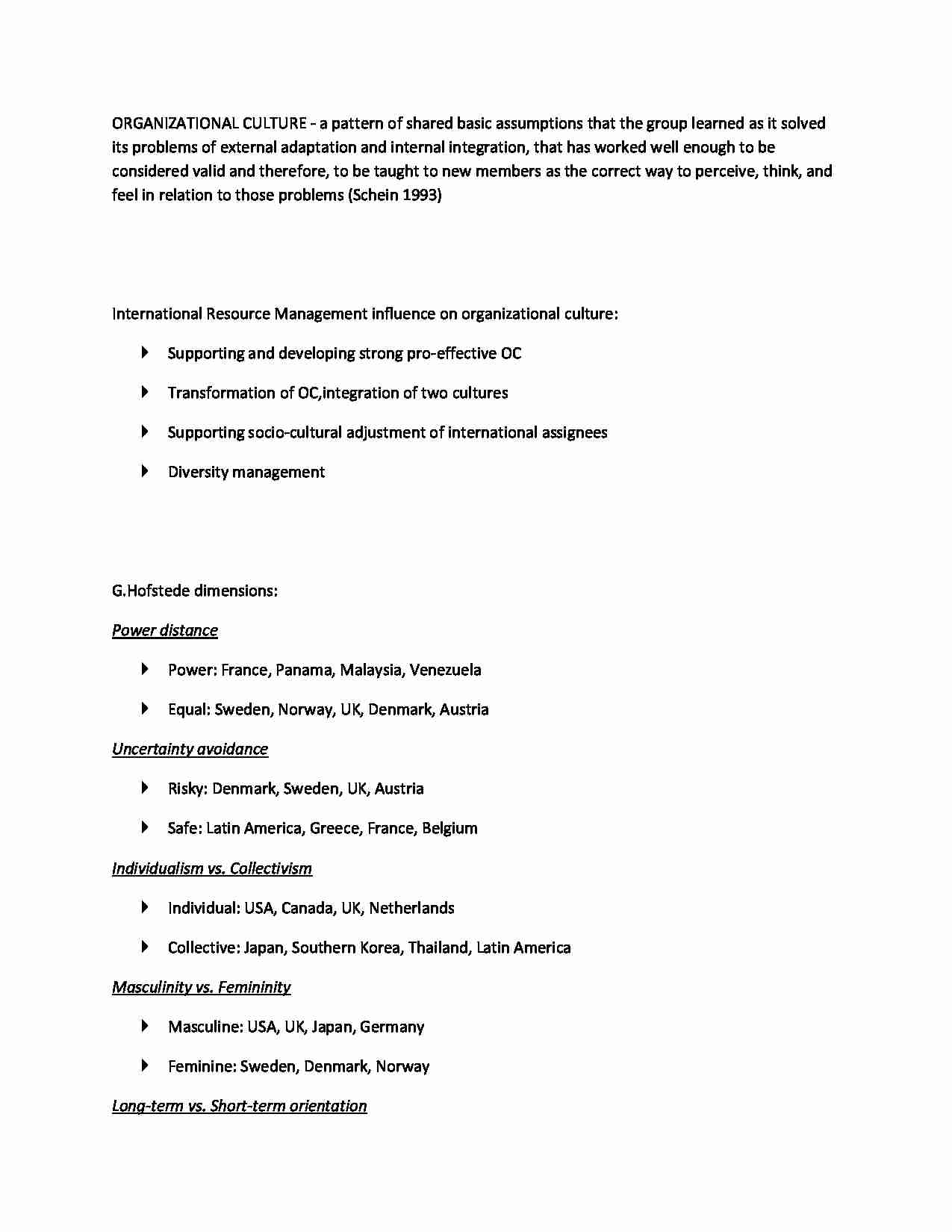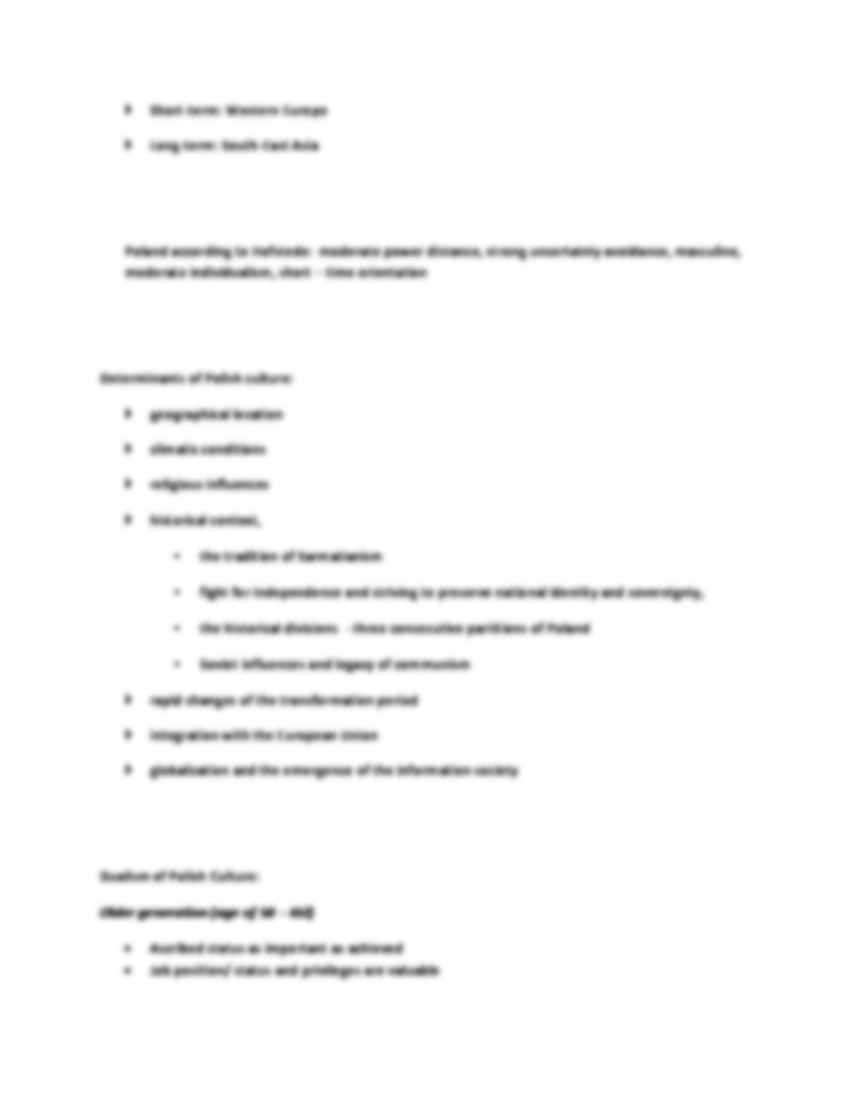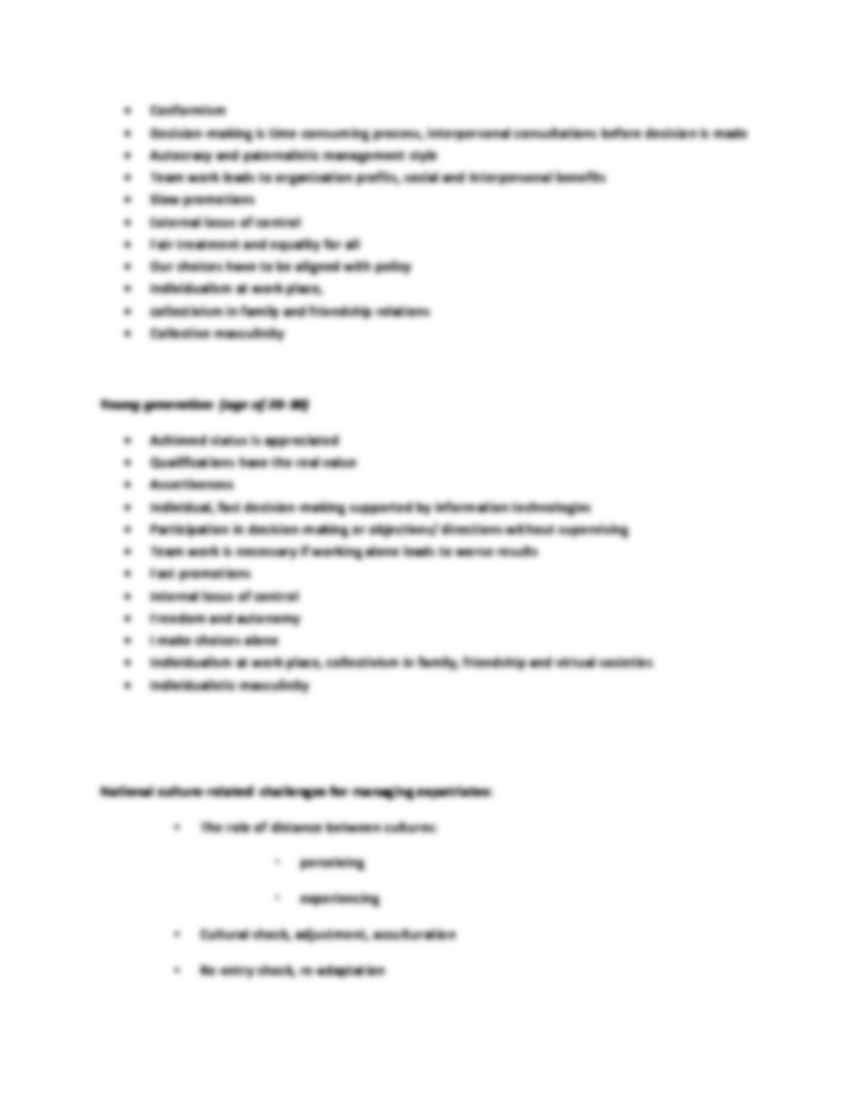To tylko jedna z 5 stron tej notatki. Zaloguj się aby zobaczyć ten dokument.
Zobacz
całą notatkę



ORGANIZATIONAL CULTURE - a pattern of shared basic assumptions that the group learned as it solved its problems of external adaptation and internal integration, that has worked well enough to be considered valid and therefore, to be taught to new members as the correct way to perceive, think, and feel in relation to those problems (Schein 1993)
International Resource Management influence on organizational culture:
Supporting and developing strong pro-effective OC
Transformation of OC, integration of two cultures Supporting socio-cultural adjustment of international assignees Diversity management
G. Hofstede dimensions: Power distance Power: France, Panama, Malaysia, Venezuela
Equal: Sweden, Norway, UK, Denmark, Austria Uncertainty avoidance Risky: Denmark, Sweden, UK, Austria
Safe: Latin America, Greece, France, Belgium Individualism vs. Collectivism Individual: USA, Canada, UK, Netherlands
Collective: Japan, Southern Korea, Thailand, Latin America Masculinity vs. Femininity Masculine: USA, UK, Japan, Germany
Feminine: Sweden, Denmark, Norway Long-term vs. Short-term orientation Short-term: Western Europe
Long-term: South-East Asia
Poland according to Hofstede: moderate power distance, strong uncertainty avoidance, masculine, moderate individualism, short - time orientation
Determinants of Polish culture:
geographical location
climatic conditions
religious influences historical context, the tradition of Sarmatianism fight for independence and striving to preserve national identity and sovereignty, the historical divisions - three consecutive partitions of Poland
Soviet influences and legacy of communism
rapid changes of the transformation period
integration with the European Union
globalization and the emergence of the information society Dualism of Polish Culture: Older generation (age of 50 - 65l) Ascribed status as important as achieved Job position/ status and privileges are valuable Conformism
Decision-making is time-consuming process, interpersonal consultations before decision is made
Autocracy and paternalistic management style Team work leads to organization profits, social and interpersonal benefits
Slow promotions External locus of control Fair treatment and equality for all
Our choices have to be aligned with policy
Individualism at work place, collectivism in family and friendship relations
... zobacz całą notatkę






Komentarze użytkowników (0)